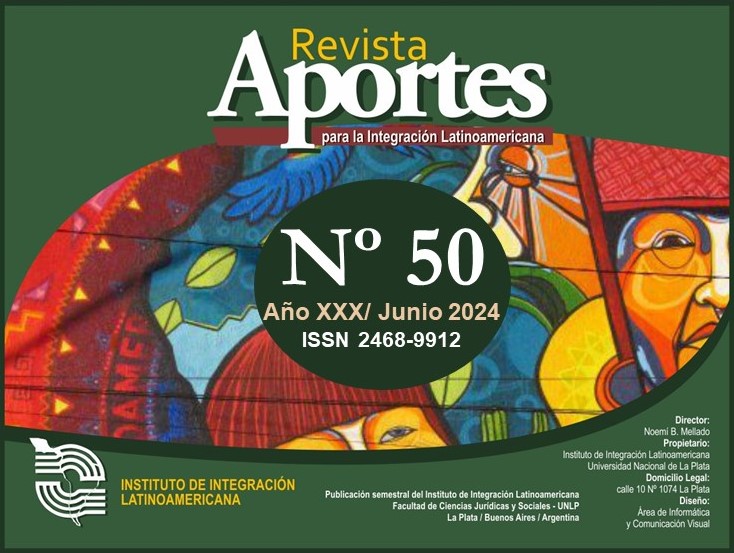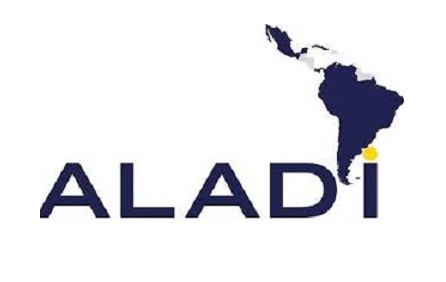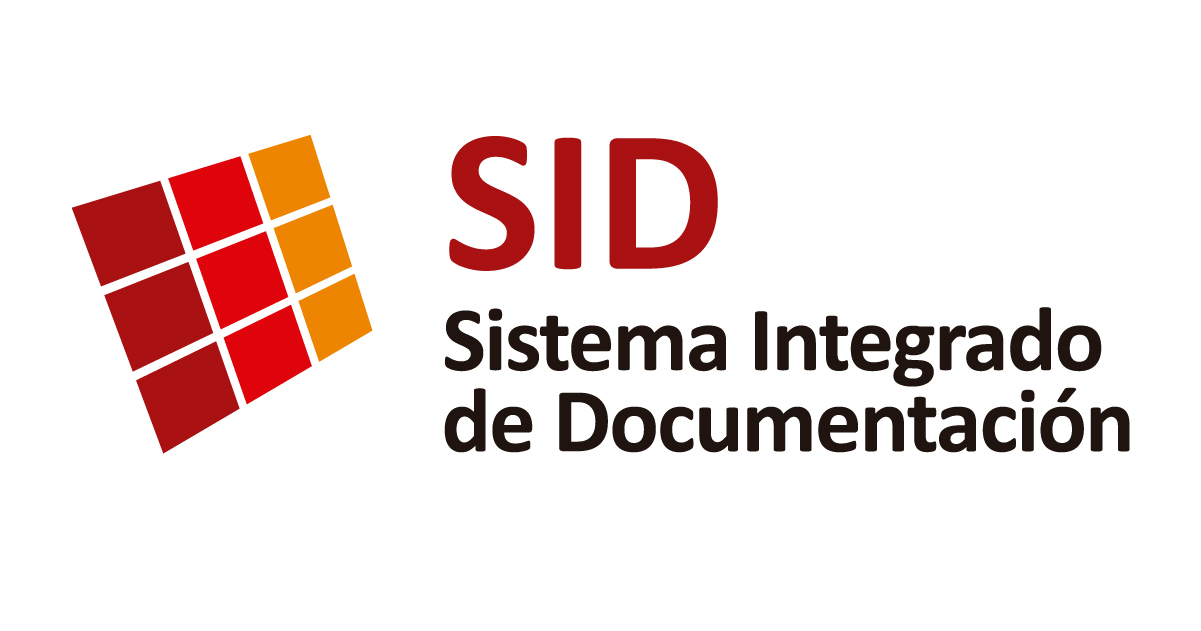Raúl Prebisch, el estructuralismo de la CEPAL y los aportes latinoamericanos a la teoría de la Economía Política Internacional
DOI:
https://doi.org/10.24215/24689912e054Palavras-chave:
Prebisch, CEPAL, estructuralismo, centro-periferia, desarrollo, integraciónResumo
En este artículo se analiza los aportes de Raúl Prebisch y el estructuralismo latinoamericano al estudio de la Economía Política Internacional. Se argumenta que el economista argentino fue el promotor de una escuela de pensamiento latinoamericano, el estructuralismo, que realizó aportaciones originales en el análisis de las relaciones entre poder y bienestar en las Relaciones Económicas Internacionales. En el artículo se analiza el lugar de Prebisch en la disciplina de las Relaciones Internacionales. Posteriormente, se examina la explicación prebischiana de las temáticas centrales de la agenda de investigación estructuralista, partiendo de una discusión sobre los niveles de análisis, para evaluar luego sus elementos explicativos y normativos. En este sentido, se analizan temas como la visión del orden económico internacional, los enfoques sobre el desarrollo económico y el papel de la integración económica.
Referências
Akinsanya, A. y Davies, A. (1984). Third world quest for a new international economic order: An overview. International & Comparative Law Quarterly, 33(1), 208-217.
Amsden, A. H. (2004). La sustitución de importaciones en las industrias de alta tecnología: Prebisch renace en Asia. Revista de la CEPAL, (82), 76-90.
Angell, N. (1911). The great illusion, a study of the relation of military power in nations to their economic and social advantage. G. P. Putnam´s Sons.
Arndt, H. W. (1982). The new international economic order: A retrospect. International Review of Education, 28(4), 431-434.
Bhagwati, J. N. (1985). Essays on economic development: Wealth and poverty. Mass, MIT Press.
Bhaskar, R. (1975). Reclaiming Reality. Verso.
Bhaskar, R. (1989). A Realist Theory of Social Science. Harvester.
Biersteker, T. (2009). The parochialism of hegemony. Challenges for the ‘American’ International Relation. En A. Tickner y O. Wæver (Eds.), International relations scholarship around the world (pp. 308-327). Routledge. https://doi.org/10.4324/9780203885451
Buzan, B. (1997). The level of analysis problem in international relations reconsidered. En K. Booth y S. Smith (Eds.), International relations today (pp. 198-216). Polity Press.
Buzan, B. (2018). How and how not to develop IR theory: Lessons from core and periphery. The Chinese Journal of International Politics, 11(4), 391-414. https://doi.org/10.1093/cjip/poy013
Buzan, B., Jones, C. y Little, R. (1993). The logic of anarchy: Neorealism to structural realism. Columbia University Press.
Buzan, B., Wæver, O. y Wilde, J. (1998). Security: A new framework for the analysis. Lynne Rienner Publisher.
Carr, E. H. (2004). La crisis de los veinte años (1919-1939): una introducción al estudio de las Relaciones Internacionales (Trad. E. Benzal Alonso). La Catarata. (Trabajo original publicado en 1939).
Chang, H. J. (2020). Construir un multilateralismo favorable al desarrollo: hacia un “nuevo” nuevo orden económico internacional. Revista de la CEPAL, (132), 67-78. https://repositorio.cepal.org/handle/11362/46824
Clark, C. (1940). The conditions of economic progress. Macmillan-St Martin’s.
Comisión Económica para América Latina y el Caribe. (1959). El mercado común latinoamericano. Naciones Unidas, CEPAL.
Comisión Económica para América Latina y el Caribe. (1964). Problemas y perspectivas del desarrollo industrial latinoamericano. Hachette.
Comisión Económica para América Latina y el Caribe. (1973). Desarrollo económico, planeamiento y cooperación internacional. Naciones Unidas, CEPAL.
Crawford, R. M. A. y Darryl, J. S. L. (2001). International relations still an American social science? Toward diversity in international thought. New York University Press.
D’Anieri, P. (2009). International politics: Power and purpose in Global Affairs. Wadsworth.
Dessler, D. (1989). What’s at stake in the agent-structure debate? International Organization, 43(3), 441-73.
Deves Valdez, E. (2000). Del Ariel de Rodó a la CEPAL (1990-1950). En E. Deves Valdez (Ed.), El pensamiento latinoamericano en el siglo XX. Entre la modernización y la identidad (pp. 290-304). Biblos.
Dickson, A. K. (1997). Development and international relations. A critical introduction. Polity Press.
Dos Santos, T. (1969). La crisis de la teoría del desarrollo y las relaciones de dependencia en América Latina. En H. Jaguaribe, A. Ferrer, M. S. Wionczek y T. Dos Santos (Eds.), La dependencia Económica de América Latina (pp. 147-187). Siglo XXI.
Economides, S. y Wilson P. (2001). The economic factor in international relations a brief introduction. I. B. Tauris.
Elster, J. (1975). Rational Choice. Basil Blackwell.
Estados Unidos de America y Reino Unido. (1941). The Atlantic Charter. https://usinfo.org/docs/democracy/53.htm
Ferrer, A. (1996). Raúl Prebisch y los problemas actuales de América Latina. Ciclos, 6(10), 103-117.
Ferrer, A. (2006). Estructuralismo: un paradigma válido para abordar el futuro. En G. Parra Luzardo, D. F. Maza Zavala, T. Dos Santos, F. Pazos, A. Ferrer y R. Prebisch (Eds.), Raúl Prebisch, pensamiento renovador (pp. 79-97). Banco Central de Venezuela.
Ferrer, A. (2010). Raúl Prebisch y el dilema del desarrollo en el mundo global. Revista de la CEPAL, (101), 7-15.
Giddens, A. (1986). The constitution of society: Outline of the Theory of Structuration. Polity Press.
Gilpin, R. (1987). The political economy of international relations. Princeton University Press.
Gilpin, R. (2001). Global political economy. Understanding the international economic order. Princeton University Press.
Glucksman, M. (1974). Structuralist analysis in contemporary thought. Routledge Kegan Paul.
Gurrieri, A. (1981). La economía política de Raúl Prebisch. CEPAL. https://hdl.handle.net/11362/33090
Heckscher, E. (1919). The effects of foreign trade in the distribution of income. En H. Ellis y L. A. Metzler (Eds.), Readings in the Theory of International Trade (pp. 272-300). Blackiston.
Hempel, C y Oppenhiem P. (1948). Studies in the logic of explanation. Philosophy of Science, 15(2), 135-175.
Hobson, A. J. (1981). Estudio del imperialismo (Trad. J. Fomperosa). Alianza Editorial. (Trabajo original publicado en 1902).
Hoffmann, S. (1977). An American social science: International relations. Daedalus, 106(3), 41-60.
Hollis, M y Smith S. (1990). Explaining and understanding international relations. Oxford University Press.
Holsti, K. J. (1985). The dividing discipline. Hegemony and diversity in international relations. Allen & Unwin.
Jameson, K. P. (1986). Latin American structuralism: A methodological perspective. World Development, 14(2), 223-232.
Kay, C. (1991). Teorías latinoamericanas del desarrollo. Nueva Sociedad, (113), 101-113.
Keat, R y Urry J. (2010). Social theory as science. Taylor and Francis.
Keynes, J. M. (2002). Las consecuencias económicas de la paz (Trad. J. Uña). Crítica. (Trabajo original publicado en 1919).
Knutsen, T. L. (1997). A history of international relations theory. Manchester University Press.
Krishnan-Kutty, G. (2000). Thoughts of Francois Perroux and Raul Prebisch on development of third world countries. Northern Book Centre.
Lenin, V. I. (2012). Imperialismo: la fase superior del capitalismo (Trad. Fundación Federico Engels). Taurus. (Trabajo original publicado en 1917).
Luxemburgo, R. (1967). La acumulación del capital. Grijalbo. (Trabajo original publicado en 1913).
Mitrany, D. (1933). The progress in international government. Yale University Press.
Montecinos, V. y Markoff J. (2001). From the power of economic ideas to the power of economists. En M. A. Centeno y F. López-Alves (Eds.), The political power of economic ideas: Keynesianism across nations (pp. 111-116). Pricenton University Press.
Nurkse, R. (1961). Equilibrio y crecimiento en la economía mundial. Oxford University Press.
Ohlin, B. (1935). Interregional and international trade. (2° ed.). Harvard University Press.
Onuf, N. G. (1989). World of our making. University of South Carolina Press.
Palan, R. (2000). New trends in global political economy. En R. Palan (Ed.), Global politica economy. Contemporary theories (pp. 1-17). Routledge.
Palma, G. (1978). Dependency: A formal theory of underdevelopment or a methodology for the analysis of concrete situations of underdevelopment? World Development, 6(7-8), 881-924.
Peet, R. y Hartwick, E. R. (2009). Theories of development: Contentions, arguments, alternatives. Guilford Press.
Pinto, A. (1970). Naturaleza e implicaciones de la “heterogeneidad estructural” de la América Latina. El Trimestre Económico, 37(145-1), 83-100.
Pinto Santa Cruz, A. (1973). Heterogeneidad estructural y modelo de desarrollo reciente de la América Latina. Instituto Latinoamericano de Planificación Económica y Social (ILPES). https://hdl.handle.net/11362/35058
Prebisch, R. (1949). El desarrollo económico de la América Latina y alguno de sus principales problemas. El Trimestre Económico, 63(249), 175-245.
Prebisch, R. (1954). La cooperación internacional en la política de desarrollo latinoamericano. CEPAL. https://hdl.handle.net/11362/3013
Prebisch, R. (1959). Commercial policy in the underdevelopment countries. The American Economic Review, 49(2), 251-273.
Prebisch, R. (1959). El Mercado Común Latinoamericano. Comercio Exterior, 9(9), 509-513. https://hdl.handle.net/11362/32866
Prebisch, R. (1961). Joint responsibilities for Latin American progress. Foreign Affairs, 39(4), 622-633.
Prebisch, R. (1964). Problemas y perspectivas del desarrollo industrial latinoamericano. Hachette.
Prebisch, R. (1964). Towards a new trade policy for development. United Nations.
Prebisch, R. (1970). Transformación y desarrollo: la gran tarea de América Latina. Fondo de Cultura Económica.
Prebisch, R. (1973). Problemas teóricos y prácticos del crecimiento económicos. CEPAL. https://hdl.handle.net/11362/2947
Prebisch, R. (1983). Cinco etapas de mi pensamiento sobre el desarrollo. El Trimestre Económico, 50(198), 1077-1096.
Prebisch, R. (1988). Dependencia, interdependencia y desarrollo. Revista de CEPAL, (34), 205-212. https://hdl.handle.net/11362/11698
Rivarola Puntigliano, A. (2017). Thinking big from the periphery: Raúl Prebisch and the world system. En M. Margulis (Ed.), The global political economy of Raul Prebisch (pp. 45-60). Routledge.
Rodrik, D. (1997). Globalization, social conflict and economic growth. UNCTAD.
Rosales, O. (1988). Balance y renovación en el paradigma estructuralista del desarrollo latinoamericano. Revista de la CEPAL, (34), 19-36. https://hdl.handle.net/11362/38044
Rosenstein-Rodan, P. N. (1943). Problems of industrialisation of Eastern and South-Eastern Europe. The Economic Journal, 53(210/211), 202-211. https://doi.org/10.2307/2226317
Russett, B., Starr H. y Kinsella D. (2010). World politics: The menu for choice. Wadsworth.
Salazar, J. M. (1993). El resurgimiento de la integración y el legado de Prebisch. Revista de la CEPAL, (50), 21-40.
Salgado, G. (1979). El mercado regional latinoamericano: el proyecto y la realidad. Revista de la CEPAL, (7), 87-133.
Singer, D. (1961). The level analysis problem in international relation. World Politics, 14(1), 77-92. https://doi.org/10.2307/2009557
Singer, H. (1950). The distribution of gains between investing and borrowing countries. American Economic Review. Papers and Proceedings, 1(2), 84-89. https://www.jstor.org/stable/1818065
Sprout, R. (1991). Repensando en Prebisch. En C. Mallorquín y J. Lora (Eds.), Prebisch y Furtado: el estructuralismo latinoamericano. Benemérita Universidad Autónoma de Puebla.
Strange, S. (1988). States and markets. Pinter.
Street, J. H. (1987). The institutionalist theory of economic development. Journal of Economic Issues, 21(4), 1861-1887. https://doi.org/10.1080/00213624.1987.11504725
Tickner, A. (2003). Hearing Latin American voices in international relation. International Studies Perspectives, 4(4), 325-350. https://www.jstor.org/stable/44218845
Tickner, A. (2009). Latin America: Still policy dependent after all these years? En A. Tickner y O. Wæver (Eds.), International relations scholarship around the world (pp. 32-52). Routledge. https://doi.org/10.4324/9780203885451
Toye, J. y Toye, R. (2004). The UN and the global political economy: Trade, finance and development. Bloomington. Indiana University Press.
Wæver, O. (1998). The sociology of a not so international discipline: American and European developments in international relations. International Organization, 52(4), 687-727. https://www.jstor.org/stable/2601355
Waltz, K. (1959). Man, the State and war. A theoretical analysis. Columbia University Press.
Wendt, A. (1991). Bridging the theory/meta-theory in international relations. Review of International Studies, 17(4), 383-392. https://doi.org/10.1017/S0260210500112070
Wendt, A. (1999). Social theory of international politics. Cambridge University Press. https://doi.org/10.1017/CBO9780511612183
Wight, C. (2006). Agents, structures and international relations: Politics as ontology. Cambridge University Press.
Woolf, L. (1920). Imperialism and civilization. Harcourt, Brace and Company.
Woolf, L. (1928). Economic imperialism. The Swathmore Press.
Yalem, R. J. (1977). The level-of-analysis problem reconsidered. Yearbook of World Affairs, 31(3), 306-326.
Downloads
Publicado
Edição
Seção
Licença
Copyright (c) 2024 José Briceño Ruiz

Este trabalho é licenciado sob uma licença Creative Commons Attribution-NonCommercial-NoDerivatives 3.0 International License.
Obras bajo licencia CC-BY-NC-ND
Esta licencia no permite la generación de obras derivadas ni hacer un uso comercial de la obra original, es decir, sólo son posibles los usos y finalidades que no tengan carácter comercial.


































